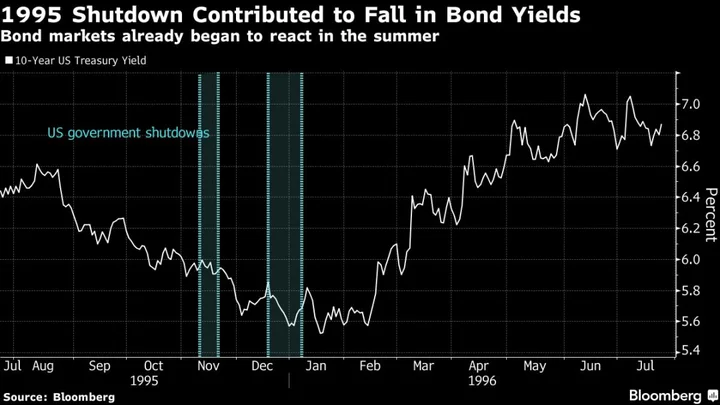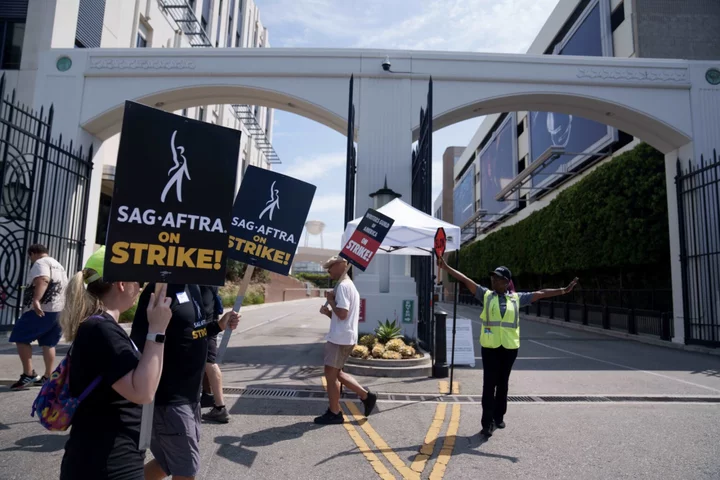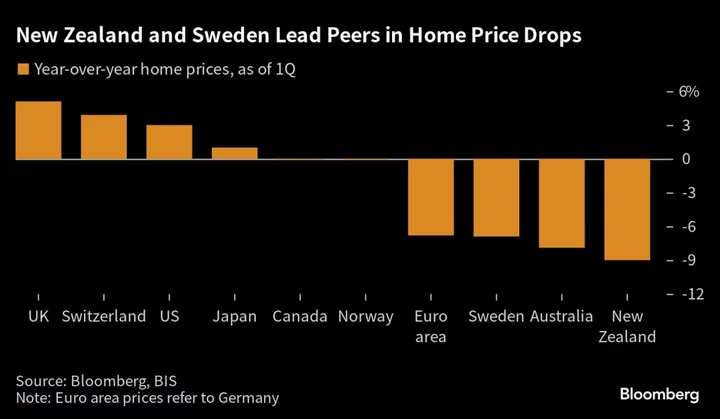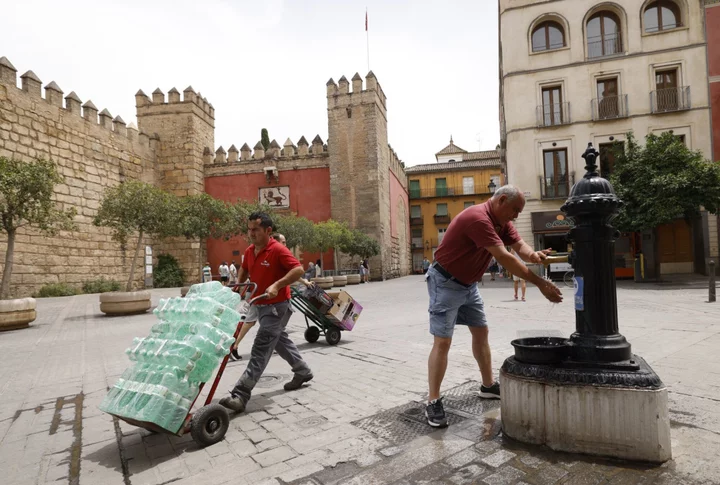
Raphael Varane hits out at 'damaging' injury time rule changes
Man Utd defender Raphael Varane reacts to the Premier League's new stoppage time rules.
1970-01-01 08:00

US Government Shutdown Threat Builds in Post-Downgrade Fallout, Imperiling Soft Landing Bets
A fresh fiscal showdown is brewing in Washington that threatens to complicate the Federal Reserve’s policy making and
1970-01-01 08:00

Netanyahu Says Bet on Israel and Saudi Arabia Deepening Ties
Israel and Saudi Arabia will deepen economic and business ties even if they don’t formally recognize each other,
1970-01-01 08:00

Study reveals how muscle cells deteriorate with age, hampering injury recovery
Researchers have revealed how muscle cells deteriorate with age, affecting their ability to regenerate and recover after an injury. The findings could help to shed light on why it takes people longer to recover from muscle damage as they age. A team at Nottingham Trent University analysed the genes inside muscle cells, and found the ‘development pathways’ – the different ways in which genes work together to regenerate muscle – become weakened in older cells. We know that healthy muscle regenerates after we’ve had an injury but ageing impairs that regeneration potential and recovery gets harder the older we get Dr Livia Santos, Nottingham Trent University Lead researcher Dr Livia Santos, an expert in musculoskeletal biology in Nottingham Trent University’s School of Science and Technology, said: “This goes some way towards explaining why muscle injuries may take longer to recover as we get older.” She added: “We know that healthy muscle regenerates after we’ve had an injury but ageing impairs that regeneration potential and recovery gets harder the older we get. “What we’ve observed, in terms of what happens inside the cells, helps us to better understand why we don’t heal as well or as quickly in older age. “The pathways that control cell processes and development work differently in older cells and are downregulated, meaning regeneration is impacted the older we get. “If we can understand these pathways, however, we could potentially identify new therapies and interventions to mitigate the problem.” The researchers developed a new approach to examine muscle cells in the laboratory to enable them to observe the different mechanisms that drive muscle ageing. They studied muscle cells from donors, chemically injuring cells after they had been donated and isolated, then assessing how they heal and regenerate back to their pre-injury baseline levels. When they looked at cells from a 20-year-old and a 68-year-old donor, researchers found distinct differences in the development pathways of the younger and older cells. While younger muscle cells fully recovered from the injury, the team found that in older cells the genes expressed less of what they needed to, leaving the cells no longer able to perform in the way they should. According to the researchers, this contributes to reduced regeneration capacity leading to thinner, less robust ‘myotubes’ – a type of cell that can fully develop into a muscle fibre. Muscle regeneration is a complex and finely balanced biological process and is known to deteriorate with ageing, leading to the decline of musculoskeletal health and in some cases metabolic and genetic diseases. Our work enables us to examine muscle cell regeneration across the lifespan and this in turn could be key for future drug discovery for disease related to muscle ageing Researcher Janelle Tarum Janelle Tarum, another researcher on the study, said: “We’ve been able to develop a new approach to assess muscle regeneration which involves a state-of-the-art technique called RNA-sequencing. “There’s a very clear reduced regeneration capacity and weakened recovery of aged cells and we have been able to further understand the factors underlying this impairment. “Our work enables us to examine muscle cell regeneration across the lifespan and this in turn could be key for future drug discovery for disease related to muscle ageing.” The study, which also involved Manchester Metropolitan University and Liverpool John Moores University, is published in the Journal of Tissue Engineering and Regenerative Medicine.
1970-01-01 08:00

UBS to Cut Two-Thirds of Credit Suisse Asia Investment Bankers
UBS Group AG is weighing a plan to cut about two-thirds of Credit Suisse Group’s investment bankers in
1970-01-01 08:00

In Hollywood, Writers and Actors Fear AI Will Replace Them: Big Take Podcast
Listen to The Big Take podcast on iHeart, Apple Podcasts, Spotify, Terminal. Three months into the writers’ and
1970-01-01 08:00

US Considers Phased Hydrogen Tax-Credit Plan in Bid to Balance Industry, Activists
A top climate adviser to US President Joe Biden signaled the administration could phase in some requirements for
1970-01-01 08:00

Barbillion! ‘Barbie’ madks history by making over $1 BILLION in global box office gross
Studio executives are calling the film ‘Barbillion’ after ‘Barbie’ made history by raking in more than $1 billion in global box office gross.
1970-01-01 08:00

Cillian Murphy: ‘Oppenheimer was naïve for thinking he could end all wars by inventing atomic bomb’
After spending months researching the tormented scientist, Cillian Murphy has branded J Robert Oppenheimer “naïve” for thinking he could end “all wars” by inventing the atomic bomb.
1970-01-01 08:00

Global Home Prices Reveal Interest-Rate Pain Ripe for FX Traders
Traders hunting for an edge in the $7.5 trillion a day foreign-exchange market are poring over a crucial
1970-01-01 08:00

Amazon Pledges $20 Million for Biden’s School Cybersecurity Plan
Amazon.com Inc.’s web services division is offering $20 million in cybersecurity grants to K-12 schools as part of
1970-01-01 08:00

Heat Wave Returns to Spain as Storm Hans Batters Nordic Region
Extreme heat is returning to southern Europe this week, with the potential for record temperatures in parts of
1970-01-01 08:00
